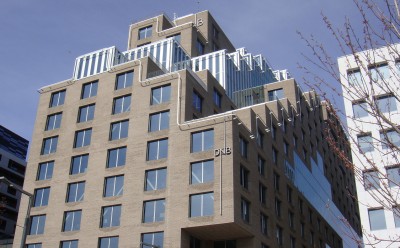Norway’s biggest bank, DNB, has responded to public protests and political criticism over its involvement in the highly controversial Dakota Access Pipeline project in the US, by pulling out of the project entirely. Attention has now turned to whether Norway’s Oil Fund will do the same thing.

“We have learned a lot from this issue,” said top DNB executive Harald Serck-Hanssen, when telling newspaper Aftenposten over the weekend that the bank has sold off its portion of a syndicated loan to the partners in the disputed pipeline. “This has been a sign that there are expectations that also banks like ours need to make good social evaluations of projects, and that we can influence situations like this.”
If built, the Dakota Access Pipeline (DAP) will carry oil through land in North- and South Dakota in the US that’s home to sacred burial grounds of the Sioux Nation. The indigenous Sioux have been protesting for months, also on the grounds the pipeline threatens to contaminate their drinking water.
Last year Norway’s own indigenous Sami people joined the protests, and helped expose how DNB, other Norwegian banks and insurance firms, and Norway’s huge sovereign wealth fund known as the Oil Fund were involved in financing both the pipeline project and some of the companies behind it.
DNB, which remains 34-percent-owned by the Norwegian state, was publicly shamed in Norway last fall when its own financing of the pipeline project and its investment funds’ ownership stakes in firms behind the project became known. DNB’s investment banking arm sold off the stakes late late year. It’s taken more time, Serck-Hanssen said, to unload its financing of the project. “Selling a bank loan is not the same as selling shares, it demands a longer process,” Serck-Hanssen told Aftenposten.
Opted for the ‘signal effect’
“We have also spoken with many interested parties (in the project),” Serck-Hanssen said, including representatives for the indigenous Sioux who live in the areas where the pipeline will be located. “It has been a fine dialogue that has involved how we could best serve, either by staying in the project as a positive force to adjust it, or whether the signal effect of us pulling out would be better.”
He said that as long as it was possible for DNB to influence where the pipeline would actually run, it was best to be part of it. “But after that possibility closed, our ability to influence it was limited. Now they (the Sioux) are glad for the signal effect (of pulling out).” Nordea Bank, the Oslo-based Storebrand insurance firm and the pension fund KLP have also sold off stakes in companies behind the pipeline project.
Pressure now on the Oil Fund
On Monday, the president of Norway’s Sami Parliament (Sametinget), Vibeke Larsen, was accompanying representatives of the Sioux’ Standing Rock reservation to a meeting with members of the Oil Fund’s ethics committee. Larsen was glad DNB had pulled out of it.
“That’s very good news,” Larsen told Aftenposten. “Now it’s just the Oil Fund that needs to understand that it must also respect the rights of indigenous people.”
All the efforts to ward off the pipeline, however, may be in vain. US President Barack Obama had halted it as protests raged late last year, but his successor Donald J Trump has since cleared the way for it to proceed despite all the objections both in the US and worldwide. Since other financiers have taken over, Serck-Hanssen noted that it’s likely the pipeline will still be built, regardless of the protests and signal effects.
newsinenglish.no/Nina Berglund

